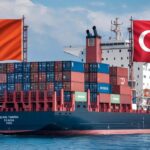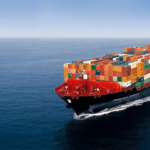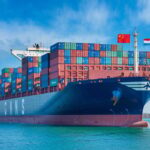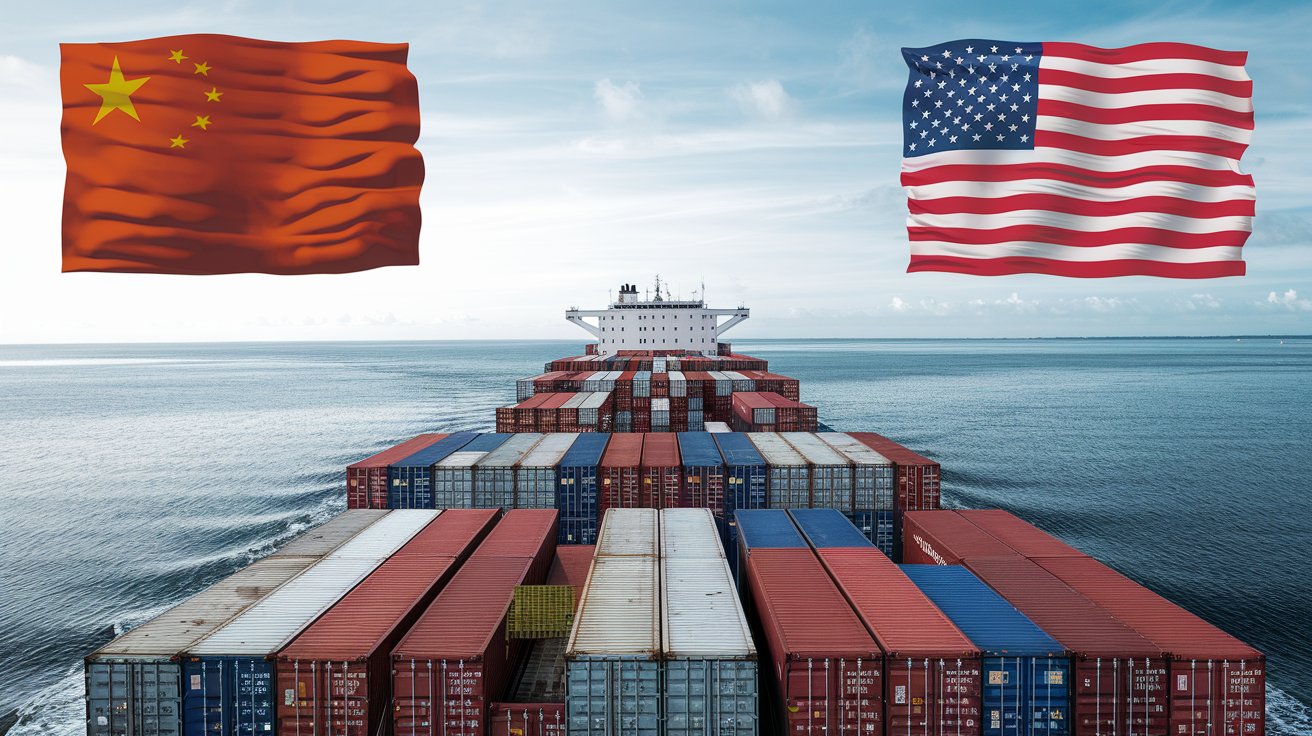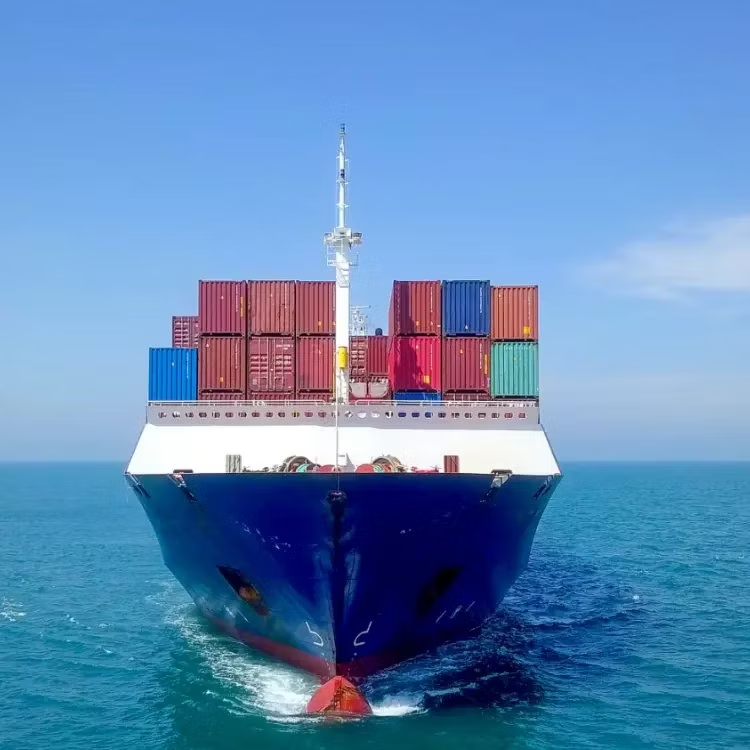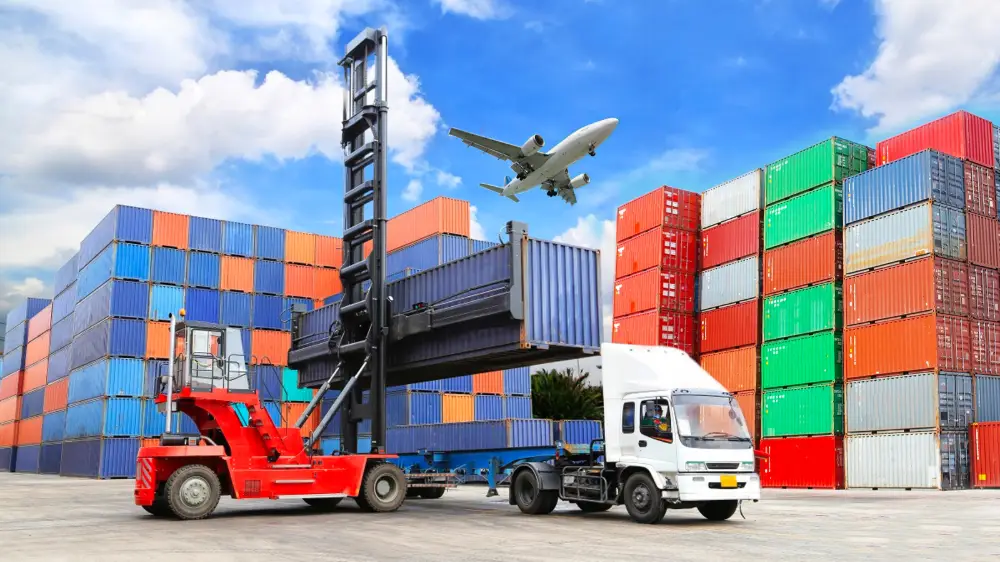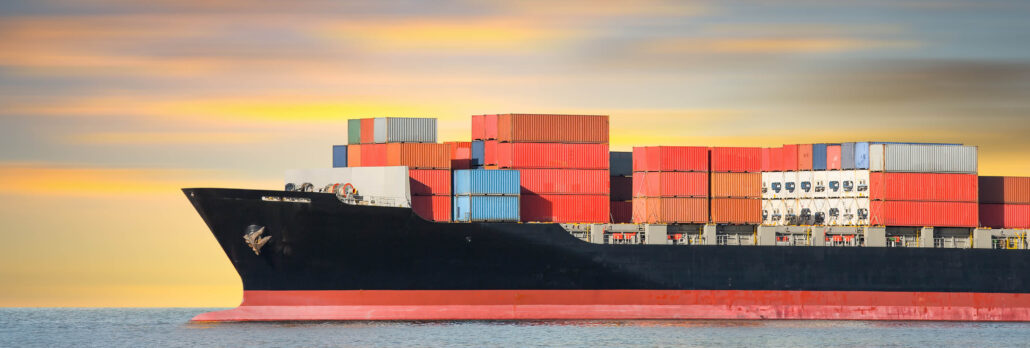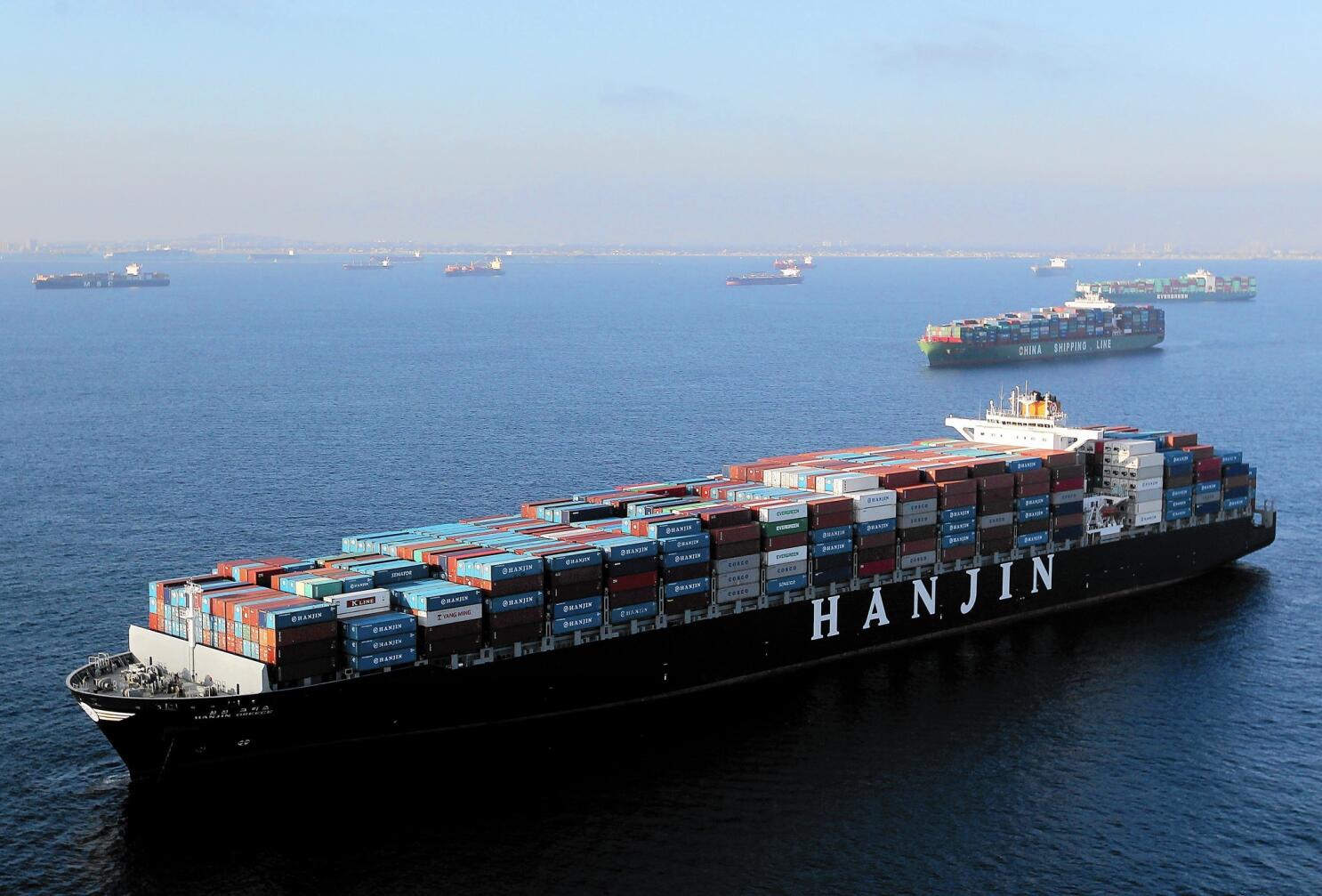In recent years, the trade relationship between China and the Czech Republic has flourished, driven by a growing demand for Chinese products across European markets. With China’s exports to the Czech Republic reached approximately $21.5 billion in 2023, the need for efficient logistics solutions becomes increasingly vital for businesses looking to capitalize on this opportunity. Sea freight stands out as a highly effective and economical method for transporting large volumes of goods over extensive distances, making it a preferred choice for importing various commodities, from heavy machinery to electronics. This guide will explore the intricacies of sea freight, including options, key ports, the shipping process, and valuable tips for optimizing your logistics strategy when importing from China to the Czech Republic.
Related Article : Shipping From China To Czech Republic
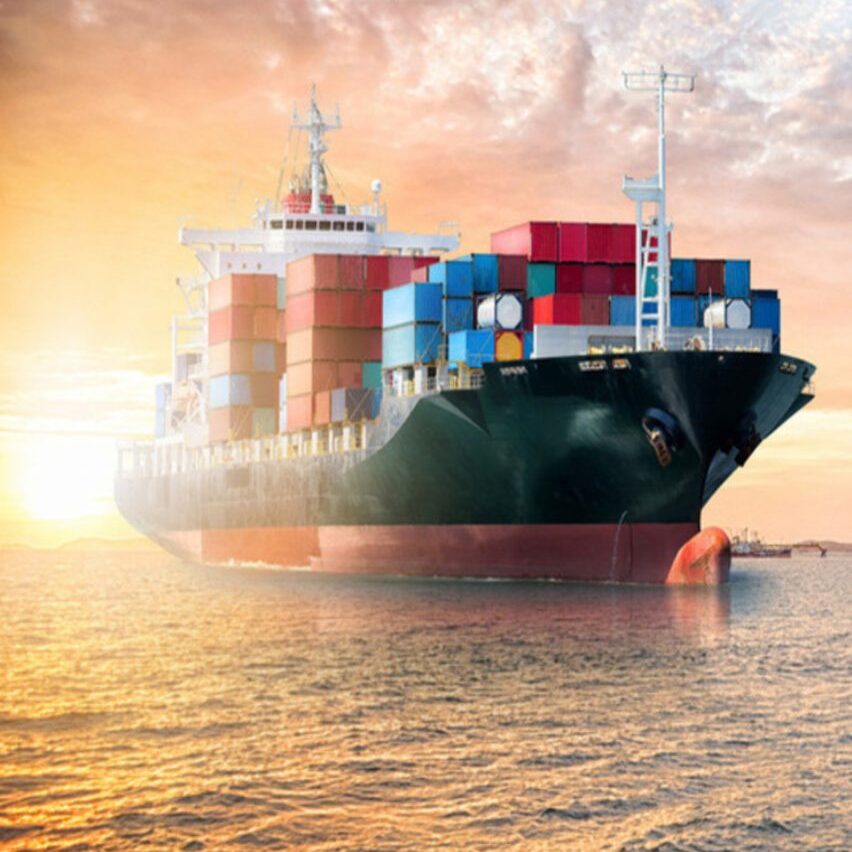
Understanding Sea Freight Options
When considering sea freight for shipping goods from China to the Czech Republic, it is essential to understand the different options available. Choosing the right shipping method can significantly impact costs, transit times, and overall logistical efficiency.
Full Container Load (FCL) Shipping
Full Container Load (FCL) shipping refers to the practice of occupying an entire shipping container for the transportation of goods. This option is typically chosen by businesses that have enough cargo to fill a container.
- Benefits of FCL Shipping
- Cost Efficiency: For larger shipments, FCL shipping often proves to be more economical than LCL. Since the cost is fixed per container regardless of the actual weight, larger shipments can lead to a lower cost per unit.
- Less Risk of Damage: Goods in an FCL shipment are less likely to be damaged since they are not mixed with other shippers’ cargo. This level of control enhances security and minimizes the risk of loss.
- Faster Transit Times: FCL shipments generally have quicker turnaround times. This is because the entire container is loaded and unloaded at the origin and destination, reducing handling time.
- Factors Affecting FCL Shipping Costs
- Container Size and Type: The choice between a 20-foot or 40-foot container can greatly affect the shipping costs.
- Fuel Costs: Fluctuations in fuel prices can impact overall shipping rates.
- Port Charges and Fees: Different ports may have varying fees for handling and unloading containers, which can add to the total cost.
Less-than-Container Load (LCL) Shipping
Less-than-Container Load (LCL) shipping is an alternative for businesses that do not have enough cargo to fill an entire container. In this case, multiple shippers’ goods share a single container.
- Advantages of LCL Shipping
- Flexibility for Smaller Shipments: LCL is ideal for businesses that have smaller volumes of goods to import, allowing them to ship only what they need without incurring the higher costs associated with FCL.
- Cost-Effectiveness for Less Volume: Companies can save money by sharing space in a container, making LCL a suitable choice for businesses that import less frequently or in smaller quantities.
- Considerations for LCL Shipping
- Potential Longer Transit Times: LCL shipments may take longer than FCL due to additional handling and consolidation processes at the port.
- Risk of Damage: Since LCL shipments consolidate cargo from multiple shippers, there is a higher risk of damage or loss. Proper packaging is essential to protect goods during transit.
- Variable Costs: Shipping costs can vary due to the need for additional handling and the complexity of planning multiple shipments, making budgeting more challenging.
In conclusion, both FCL and LCL shipping options offer unique benefits and considerations for businesses shipping from China to the Czech Republic. By understanding these options, importers can make informed decisions that optimize their logistics strategies.
For a seamless shipping experience, consider partnering with Dantful International Logistics, an expert in providing door-to-door shipping services, customs clearance, and insurance services. Dantful’s highly professional, cost-effective, and high-quality logistics solutions can meet your specific shipping needs, ensuring that your goods arrive safely and efficiently.
Read More:
- Shipping From China To Netherlands
- Shipping From China To Spain
- Shipping From China To Germany
- Shipping From China To France
- Shipping From China to Italy
- Shipping From China To Poland
- Shipping From China to United Kingdom
Top Chinese Seaports for Exports to Czech Republic
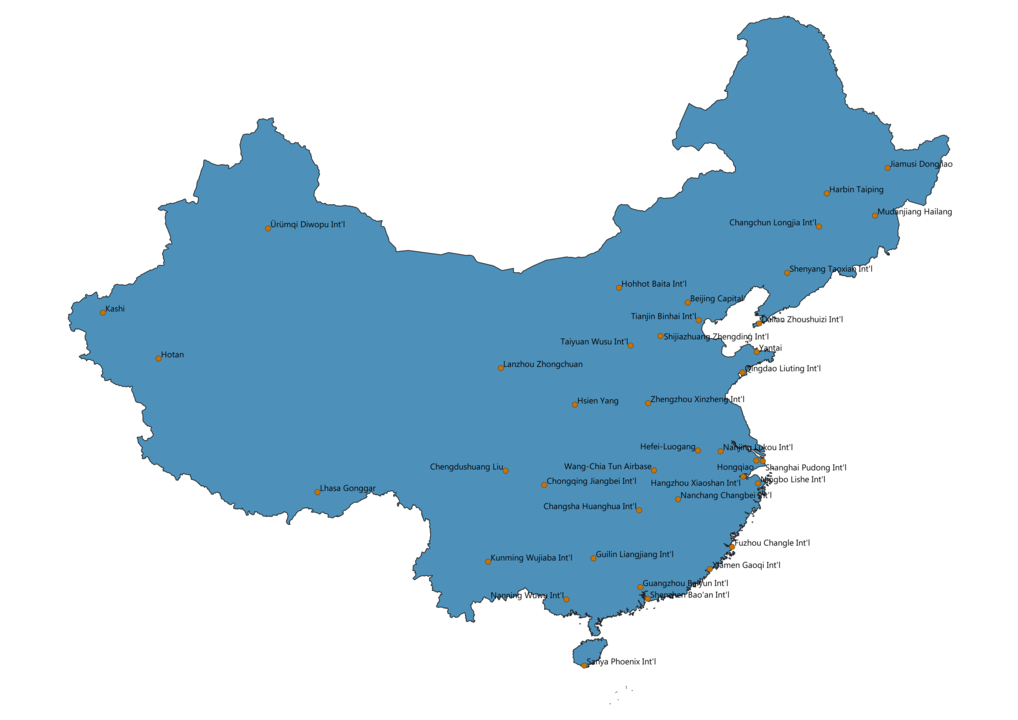
The selection of the right seaport can significantly impact shipping efficiency and costs when exporting goods from China to the Czech Republic. Here are some of the leading Chinese seaports that play a crucial role in facilitating international trade:
1. Shanghai
As one of the world’s busiest ports, Shanghai serves as a vital hub for international trade, handling millions of containers annually. The port’s extensive infrastructure, advanced technology, and efficient logistics services make it a preferred choice for businesses exporting to the Czech Republic. Key advantages include:
- Extensive Shipping Routes: Shanghai offers direct shipping services to major European ports, reducing transit times and facilitating faster deliveries.
- Well-Established Logistics Network: With numerous freight forwarders and logistics companies operating in Shanghai, businesses have access to a wide range of shipping options and support services.
2. Shenzhen
Situated in Guangdong province, Shenzhen is renowned for its rapid growth and is often referred to as the “Silicon Valley of China.” This port is essential for tech-related exports, making it ideal for businesses importing electronics and machinery to the Czech Republic. Notable benefits include:
- Proximity to Manufacturing Hubs: Shenzhen is located near many factories, allowing for quick and efficient shipping of goods.
- Advanced Port Facilities: The port has invested in modern infrastructure, enhancing its capacity to handle large volumes of cargo.
3. Ningbo-Zhoushan
Ningbo-Zhoushan is a major seaport known for its strategic location and deep-water capabilities. It is recognized for its efficiency in handling cargo and offers several advantages for exports to the Czech Republic:
- High Container Throughput: Ningbo-Zhoushan consistently ranks among the top ports globally in container throughput, ensuring swift processing of shipments.
- Diverse Shipping Options: The port provides a variety of shipping services, including FCL and LCL, catering to different business needs.
4. Guangzhou
The Guangzhou port is a key player in southern China’s trade, serving as a transit point for products heading to Europe. Its advantages include:
- Strategic Location: Located near major economic zones, Guangzhou port benefits from a robust supply chain network.
- Efficient Customs Clearance: The port has streamlined customs processes, reducing delays and enhancing shipping efficiency.
5. Qingdao
Qingdao is another important seaport that facilitates exports to the Czech Republic. Known for its deep-water capabilities and advanced handling systems, Qingdao offers:
- Diverse Export Cargo: The port is capable of handling a wide range of goods, making it suitable for businesses in various industries.
- Modern Infrastructure: Qingdao has invested significantly in improving its facilities, ensuring timely and secure shipments.
6. Tianjin
Located near Beijing, Tianjin serves as a crucial gateway for trade between China and Europe. Its key advantages include:
- Access to Major Markets: Tianjin’s strategic location provides easy access to both domestic and international markets.
- Integration with Rail and Road Networks: The port is well-connected to rail and road networks, facilitating efficient inland transportation.
Main Czech Republic Seaports for Imports
When importing goods from China, understanding the main seaports in the Czech Republic is essential for smooth operations. The following ports are critical for receiving international shipments:
1. Port of Prague
As the capital’s primary port, the Port of Prague is a strategic location for handling imports. While it is not a deep-water port, it plays a significant role in the inland waterway transport system:
- Inland Connectivity: The port has excellent connections to the river systems, allowing for efficient transportation of goods to and from various regions in the Czech Republic.
- Customs Facilities: The Port of Prague is equipped with customs facilities, enabling quick processing of imported goods.
2. Port of Ústí nad Labem
Located on the Elbe River, the Port of Ústí nad Labem is an important inland port that facilitates trade with Germany and other European countries:
- Strategic Location: Its proximity to the German border allows for efficient transportation of goods entering from various international routes.
- Flexibility in Cargo Handling: The port is capable of handling various types of cargo, including bulk, containerized, and general cargo.
3. Port of Brno
Although primarily an inland port, the Port of Brno serves an essential function in the distribution of goods throughout the Czech Republic:
- Access to Major Transportation Routes: The port connects to major road and rail networks, allowing for easy transport of goods to inland destinations.
- Comprehensive Logistics Services: Brno offers a range of logistics services, including warehousing and customs clearance, aiding businesses in managing their imports efficiently.
4. Port of Ostrava
The Port of Ostrava serves as an essential transshipment point in northeastern Czech Republic, facilitating trade routes through Slovakia and Poland:
- Bulk Cargo Handling: The port specializes in bulk cargo and is well-equipped to handle various goods, making it a vital hub for specific industries.
- Transport Infrastructure: Its connections to rail and road transport enhance its operational efficiency for imports.
The choice of port for import operations will have a significant impact on shipping costs, transit times, and overall logistics efficiency. Businesses importing from China should consider not only the cost but also the accessibility and available services at each port to optimize their supply chain operations.
For seamless import operations and expert guidance, businesses can rely on the services of Dantful International Logistics. Their comprehensive offerings, including customs clearance, warehouse services, and insurance services, ensure that your imports are handled efficiently and securely.
Sea Freight Shipping Process
Understanding the sea freight shipping process is essential for businesses importing goods from China to the Czech Republic. This comprehensive overview outlines each step involved in the journey of goods from origin to destination.
Booking and Documentation
The sea freight shipping process begins with booking the shipment. Companies must select a reliable freight forwarder, such as Dantful International Logistics, to facilitate the shipment. Key tasks in this phase include:
- Quotation and Booking: Requesting quotes from freight forwarders allows businesses to compare prices and services. Once the best option is selected, a booking is made.
- Documentation Preparation: Essential documents must be prepared, including the Bill of Lading, commercial invoice, packing list, and customs declaration. Accurate documentation ensures smooth customs clearance and compliance with regulations.
- Container Selection: Depending on the volume of goods, importers may choose between Full Container Load (FCL) and Less-than-Container Load (LCL) options, affecting costs and logistics.
Container Loading and Sealing
Once the booking and documentation are complete, the next step involves loading the goods into containers. This process includes:
- Loading Procedures: Goods are carefully packed into containers, considering weight distribution and securing items to minimize damage during transit. Proper loading techniques are crucial for maintaining the integrity of the cargo.
- Sealing Containers: After loading, containers are sealed with tamper-proof seals to ensure security during transport. The seal number is documented for verification upon arrival.
Ocean Transportation
With the containers sealed and ready, the cargo embarks on its journey across the seas. Key aspects of this phase include:
- Vessel Departure: The scheduled vessels depart from the port of origin, with tracking options available for businesses to monitor their shipments in real-time.
- Estimated Transit Times: Ocean transportation times vary based on the shipping route and destination port. Importers can expect transit times ranging from a few weeks to over a month.
- Weather and Port Conditions: Factors such as weather conditions and port congestion can affect sailing schedules, which underscores the importance of working with experienced logistics providers.
Customs Clearance in Czech Republic
Before the cargo can reach its final destination, it must clear customs in the Czech Republic. This stage is critical for compliance and involves:
- Documentation Submission: Freight forwarders submit necessary documents to customs authorities, including the Bill of Lading, invoice, and packing list.
- Duties and Taxes Assessment: Customs officials assess any duties and taxes applicable to the shipment. Importers must be prepared to pay these fees to release the cargo.
- Inspection: Customs may require an inspection of the cargo, particularly for specific goods. Having thorough documentation can expedite this process.
Final Delivery to Destination
Once customs clearance is complete, the final leg of the shipping process can commence:
- Transport to Destination: Depending on the agreement, the cargo can be transported directly to the buyer’s location or a designated warehouse. Options include truck or rail transport, depending on accessibility and efficiency.
- Delivery Confirmation: Upon arrival, a delivery note or receipt is provided to confirm that the shipment has been received. The importer should inspect the goods for any damage or discrepancies against the initial order.
Factors Affecting Sea Freight Costs
Several factors influence the overall costs of sea freight shipping from China to the Czech Republic. Importers should be aware of these variables to effectively budget for their logistics needs.
Container Size and Type
- FCL vs. LCL Costs: The choice between Full Container Load (FCL) and Less-than-Container Load (LCL) significantly impacts shipping costs. FCL is more economical for larger shipments, while LCL may involve higher per-unit costs due to handling.
- Container Specifications: Different sizes and types of containers (e.g., standard, refrigerated, flat-rack) may have varying rental rates that affect the overall freight cost.
Shipping Route and Distance
- Direct vs. Indirect Routes: Direct shipping routes generally incur lower costs due to reduced transit times. Indirect routes that involve transshipment or additional stops can increase expenses.
- Distance Traveled: Greater distances typically lead to higher freight rates, as shipping companies factor in fuel and handling costs associated with longer journeys.
Fuel Prices and Surcharges
- Fuel Price Fluctuations: Changes in fuel prices directly affect shipping costs. Shipping lines often implement bunker adjustment factors (BAF) to account for these variations.
- Surcharges: Additional fees may be applied for peak seasons, congestion, or increased demand, which can significantly impact the total cost of sea freight.
Customs Duties and Taxes
- Import Duties: The Czech Republic imposes duties on imported goods that vary based on product classification. Understanding the applicable rates is crucial for budgeting.
- Value Added Tax (VAT): Importers are required to pay VAT on the value of the goods upon entry, which is an essential cost consideration in the overall logistics plan.
Insurance and Handling Fees
- Cargo Insurance: Insuring goods during transit is highly recommended to protect against potential loss or damage. Insurance costs vary based on cargo value and risk factors.
- Handling Fees: These may include charges for loading, unloading, and other services provided at the port, which can add to the overall shipping expenses.
Awareness of these factors enables businesses to make informed decisions regarding their shipping strategies. For optimized shipping solutions and cost-effective logistics support, partnering with Dantful International Logistics can significantly enhance the shipping experience. Our expertise in customs clearance, door-to-door shipping services, and tailored logistics solutions ensures efficient handling of your cargo throughout the entire shipping process.
Tips for Optimizing Sea Freight From China to Czech Republic
Successfully importing goods from China to the Czech Republic via sea freight requires careful planning and execution. Here are essential tips for optimizing your shipping process:
Choosing the Right Shipping Partner
Selecting a reliable shipping partner is crucial for ensuring that your goods arrive safely and on time. When evaluating potential logistics providers, consider the following:
- Experience and Expertise: Look for freight forwarders with a proven track record in handling shipments from China to the Czech Republic. Experience in navigating specific customs regulations and port procedures can save time and minimize complications.
- Network and Connections: A shipping partner with established relationships with carriers, port authorities, and customs officials can facilitate smoother logistics and more competitive pricing.
- Comprehensive Services: Opt for a provider that offers a full suite of services, including customs clearance, insurance, and warehousing. This can streamline your shipping process and reduce coordination efforts.
Proper Packaging and Labeling
Ensuring that your cargo is appropriately packaged and labeled will minimize the risk of damage during transit and facilitate faster customs clearance:
- Robust Packaging: Use sturdy materials and design packaging that can withstand the rigors of sea transport. Consider factors like moisture exposure and temperature fluctuations, especially for sensitive items.
- Clear Labeling: All packages should be clearly labeled with essential details, including the destination address, handling instructions, and customs information. This helps prevent delays and misdeliveries.
Timely Communication with Stakeholders
Effective communication is vital throughout the shipping process to ensure all parties remain informed and engaged:
- Regular Updates: Keep in touch with your freight forwarder, suppliers, and logistics partners to receive updates on shipment status, potential delays, and any changes in the shipping schedule.
- Collaboration: Foster open lines of communication among all stakeholders, including customs brokers and transportation providers. This collaborative approach can enhance problem-solving and improve overall efficiency.
Staying Updated on Regulations and Requirements
Navigating the regulatory landscape is essential to avoid delays and unexpected costs. Staying informed about changes can help you remain compliant:
- Customs Regulations: Regularly review customs regulations in both China and the Czech Republic. Changes in tariffs, duties, and import restrictions can impact your shipping strategy.
- Documentation Requirements: Ensure you are aware of the necessary documents required for customs clearance, including import licenses, certificates of origin, and commercial invoices. Keeping updated on these requirements can help streamline the process.
8. Choosing the Right Sea Freight Forwarder
Finding the right sea freight forwarder can significantly impact the efficiency and cost-effectiveness of your shipping operations. Below are key considerations for selecting a forwarder that meets your needs.
Qualities of a Reliable Freight Forwarder
When evaluating freight forwarders, assess them based on the following qualities:
- Reputation: Research online reviews, testimonials, and case studies to gauge the forwarder’s reputation in the industry. A well-regarded forwarder is more likely to provide quality service.
- Flexibility: The ability to adapt to changing circumstances, such as fluctuating costs or unexpected delays, is crucial. A reliable forwarder should offer flexible solutions that cater to your unique needs.
- Customer Support: Choose a forwarder that provides dedicated customer support to address your questions and concerns promptly. Good communication is essential for a positive experience.
Questions to Ask When Selecting a Forwarder
To ensure you make an informed decision, consider asking potential freight forwarders the following questions:
- What experience do you have with shipments from China to the Czech Republic? Understanding their expertise in this specific route can provide confidence in their capabilities.
- What services do you offer beyond shipping? Inquire about additional services, such as customs clearance, warehousing, and cargo insurance, that can enhance your shipping experience.
- How do you handle delays and disruptions? Understanding their approach to unforeseen challenges can indicate their level of preparedness and reliability.
Why Choose Dantful Logistics
Selecting Dantful International Logistics as your freight forwarding partner offers numerous advantages:
- Expertise in International Shipping: With extensive experience in handling sea freight from China to the Czech Republic, Dantful understands the nuances of both markets and can help navigate the complexities of customs regulations effectively.
- Comprehensive Services: Dantful provides a full range of logistics services, including door-to-door shipping, customs clearance, and insurance services. This one-stop solution can simplify your shipping process and ensure that all aspects are managed seamlessly.
- Commitment to Quality: Dantful is dedicated to offering cost-effective and high-quality logistics solutions. Their reputation for reliability and customer service ensures that your shipments are in capable hands.
By choosing Dantful, you can enhance your shipping efficiency and achieve your logistics goals with confidence.
Dantful International Logistics Services:
- Dantful Ocean Freight Services
- Air Freight From China
- Amazon FBA Freight Forwarding
- WAREHOUSE Services
- One-Stop Customs Clearance Solution
- Cargo Insurance Services in China
- DDP Shipping Services By Dantful Logistics
- Out of Gauge Cargo Transportation Shipping Services

Young Chiu is a seasoned logistics expert with over 15 years of experience in international freight forwarding and supply chain management. As CEO of Dantful International Logistics, Young is dedicated to providing valuable insights and practical advice to businesses navigating the complexities of global shipping.



